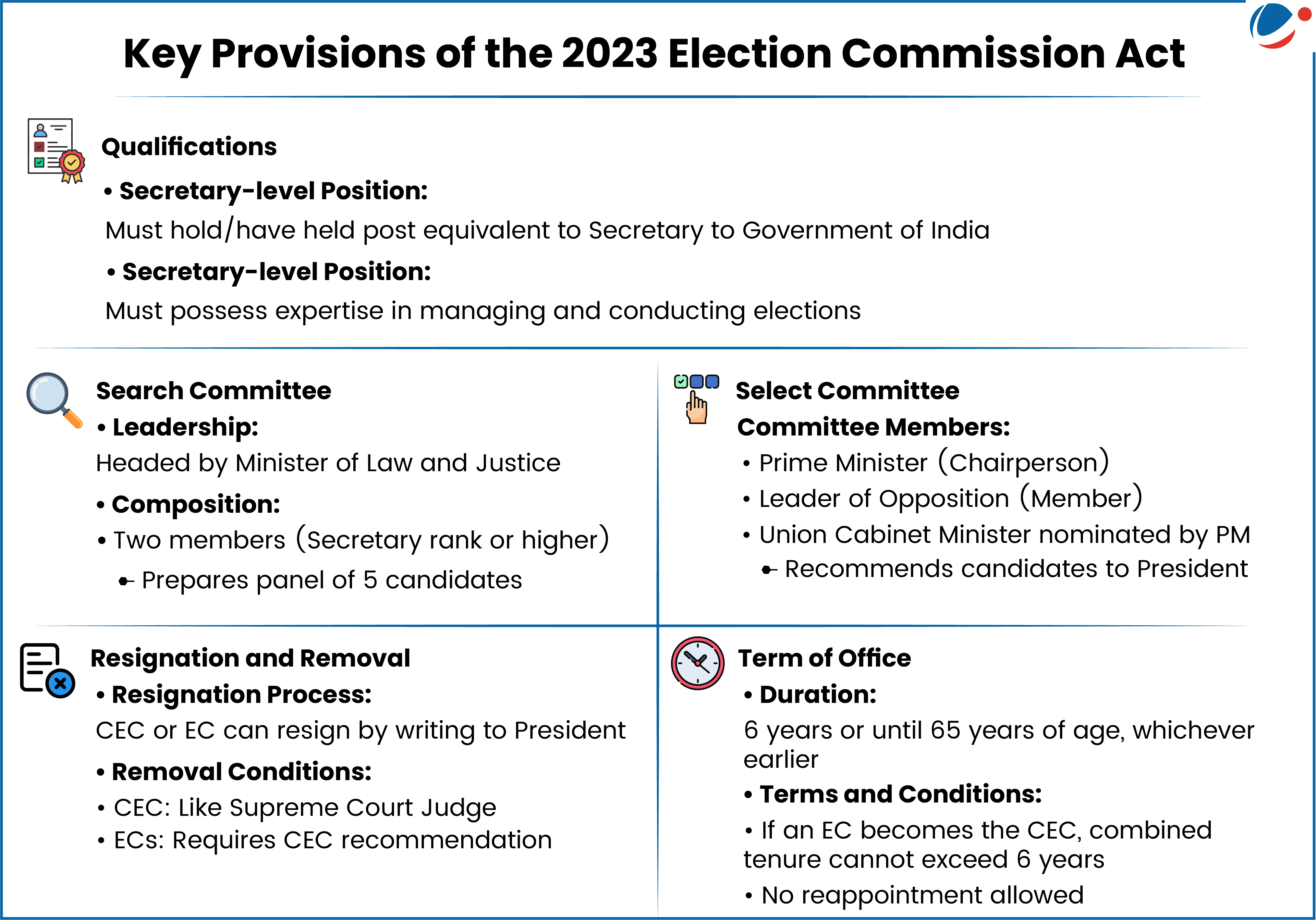This is the first appointment of the CEC under the Chief Election Commissioner and Other Election Commissioner Act, 2023 (refer to the infographic).
- The 2023 Act replaces the 1991 Act and facilitates more autonomy to the ECI.
About the Election Commission of India (ECI)

- A constitutional body under Articles 324-329 (Part XV).
- National Voters' Day celebrated on January 25 since 2011 to mark ECI’s foundation.
- Since 1993, it has one CEC and two Election Commissioners (ECs).
- It Ensures free and fair elections for:
- Lok Sabha & Rajya Sabha
- State Legislative Assemblies
- President & Vice President
- The 2023 Act provides more autonomy to the ECI as under the Act:
- CEC and ECs enjoy Supreme Court judge-level salary & benefits.
- Granted immunity from civil/criminal proceedings for official duties.
- Search & selection committees for appointments.
- Fixed tenure for CEC & ECs.
Issues Faced by ECI
- Questionable Autonomy
- Selection Process: The search and selection committee have a majority of government representatives, raising concerns about independence.
- Removal of ECs: Unlike the CEC, the ECs can be removed based on the CEC’s recommendation.
- Limited Powers: ECI cannot de-register political parties, even for serious violations.
- Lack of Independent Staff: ECI relies on government employees instead of having its own dedicated workforce, affecting its autonomy.





